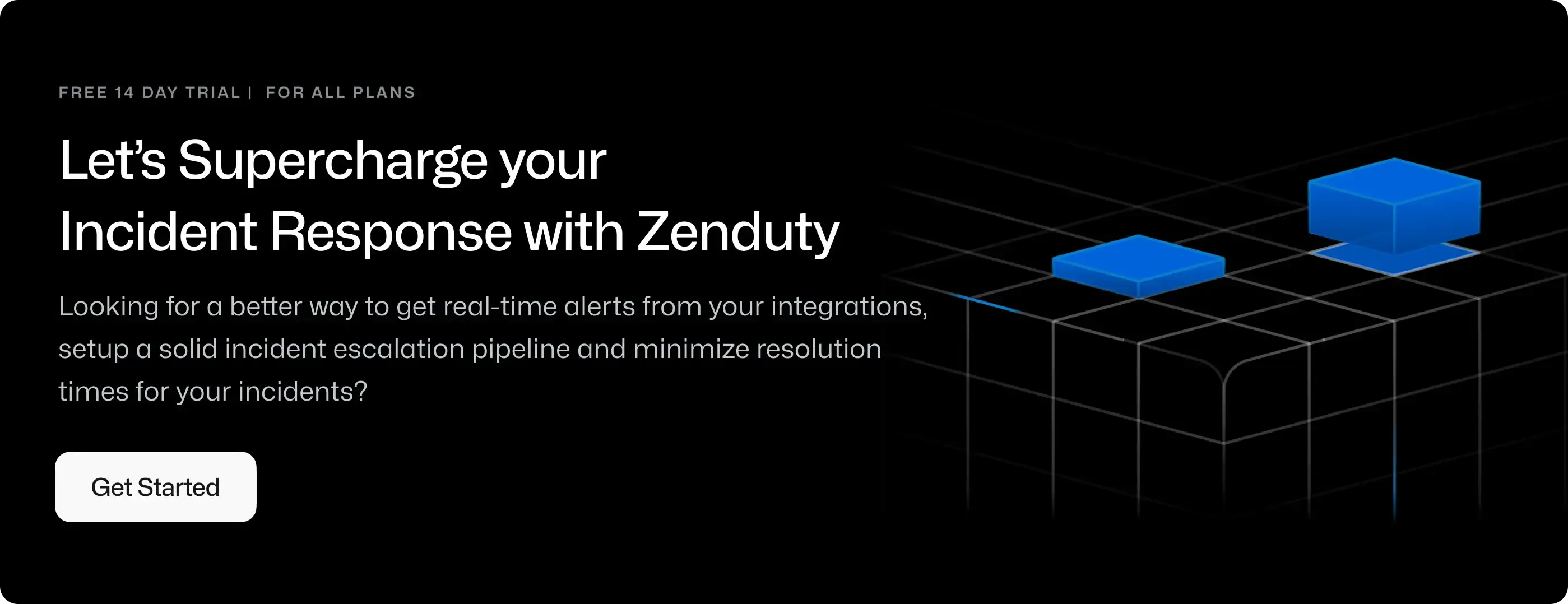Sensu Go Integration Guide
Sensu is a free and open source monitoring that handles cloud environments. Sensu allows one to monitor servers services application health and business KPIs.
What can Zenduty do for Sensu Go users?
With Sensu's Integration, Zenduty sends new Sensu alerts to the right team and notifies them based on on-call schedules via email, text messages(SMS), phone calls(Voice), Slack, Microsoft Teams and iOS & Android push notifications, and escalates alerts until the alert is acknowledged or closed. Zenduty provides your NOC, SRE and application engineers with detailed context around the Sensu ticket alert along with playbooks and a complete incident command framework to triage, remediate and resolve incidents with speed.
Whenever a Event is created in Sensu, Zenduty will create an incident. When the event is resolved on Sensu, Zenduty will auto-resolve the ticket.
You can also use Alert Rules to custom route specific Sensu ticket alerts to specific users, teams or escalation policies, write suppression rules, auto add notes, responders and incident tasks.
To integrate Sensu with Zenduty, complete the following steps:
In Zenduty:
-
To add a new Sensu Go integration, go to Teams on Zenduty and click on the team you want to add the integration to.
-
Next, go to Services and click on the relevant Service.
-
Go to Integrations and then Add New Integration. Give it a name and select the application Sensu from the dropdown menu.
-
Go to Configure under your Integrations and copy the Webhook URL generated.
In Sensu Go
-
To install the Zenduty Sensu Handler, go to Bonsai, The Sensu asset hub, And search for Zenduty.
-
In your Sensuctl command line tool, type in the command as given below :
_sensuctl asset add Zenduty/sensu-go-zenduty-handler_
-
Create a new yml file — to define the handler and paste the following yml code:
--- api_version: core/v2 type: Handler metadata: name: sensu-go-zenduty-handler namespace: default spec: type: pipe command: 'sensu-go-zenduty-handler -w "${ZENDUTY_WEBHOOK}"' timeout: 0 filters: - is_incident - not_silenced env_vars: - ZENDUTY_WEBHOOK={{YOUR_ZENDUTY_WEBHOOK}} runtime_assets: - Zenduty/sensu-go-zenduty-handler
Note: Don't forget to add the copied Zenduty Webhook URL into the Environment Variables.
- Proceed by creating the definition using Sensuctl with the command:
_sensuctl create -\-file YML_FILE_NAME.yml_
- Add the Zenduty Handler name into your Sensu checks that you want to send event to Zenduty.
_sensu-go-zenduty-handler_
- Sensu is now integrated with Zenduty.
